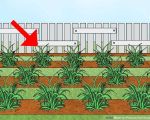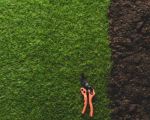Maximizing Lawn Irrigation Efficiency: How to Keep Your Lawn Green Without Wasting Water
If you're like me, you take great pride in your lawn – its lush greenery, vibrant color, and perfect texture are the hallmarks of a well-maintained garden. However, achieving and maintaining that ideal lawn requires more than just regular mowing and fertilizing. It involves one crucial aspect that many homeowners overlook: irrigation.
Why Efficient Lawn Irrigation is Crucial
Efficient irrigation isn’t just about watering your lawn regularly; it’s about watering it smartly. In regions like ours, where water conservation is more important than ever, efficient irrigation practices help save valuable resources while ensuring that your lawn receives the hydration it needs to thrive.
Overwatering not only wastes water but can also harm your lawn, leading to issues like root rot, fungal growth, and pest problems. On the flip side, underwatering can cause your grass to dry out, leading to brown patches and weak growth. Striking the right balance is key to a healthy, beautiful lawn.
Smart Tips for Improving Lawn Irrigation Efficiency
After experimenting with various techniques over the years, I’ve learned a lot about how to make my lawn irrigation system work smarter, not harder. Here are my top tips for improving lawn irrigation efficiency:
1. Water Early in the Morning
One of the most effective ways to ensure that your lawn receives proper hydration while avoiding wastage is to water early in the morning. Early morning watering allows water to soak deep into the soil before the heat of the day causes evaporation. Watering during the evening can also be tempting, but it increases the risk of fungal diseases, as the grass may stay damp overnight.
For me, setting my sprinklers to run just before dawn has proven to be the best strategy. Not only does it give my lawn time to absorb the water, but it also prevents evaporation and ensures that the grass isn’t left sitting in excess moisture for too long.
2. Adjust Your Sprinklers to Minimize Runoff
One of the common mistakes I see with many sprinkler systems is the excess water runoff that occurs when sprinklers are set to run for too long. Water runoff doesn’t benefit your lawn and often results in wasted water that drains away from the areas that need it most.
To avoid runoff, I recommend adjusting your sprinkler heads to ensure they’re covering the lawn evenly. Consider using a sprinkler system with adjustable heads that allow you to target specific areas without wasting water on sidewalks, driveways, or other hard surfaces. Additionally, if you notice areas of your lawn getting overwatered, reduce the watering time slightly to prevent waste.
3. Choose an Efficient Irrigation System
If you’re still using an outdated irrigation system or one that doesn’t suit your lawn's needs, it might be time for an upgrade. Modern irrigation systems are designed to be more efficient and customizable, helping you save water while maximizing coverage. For example, drip irrigation systems are excellent for watering flower beds and shrubs, as they deliver water directly to the roots, reducing evaporation and runoff.
Another great option is a smart irrigation system, which adjusts the watering schedule based on weather conditions. These systems use weather data to automatically modify watering times, ensuring your lawn receives the right amount of water regardless of the forecast. Since installing a smart system, I’ve noticed a significant reduction in water usage without sacrificing the health of my lawn.
4. Water Deeply and Infrequently
When it comes to watering your lawn, deeper, less frequent watering is much more effective than shallow, frequent watering. By watering deeply, you encourage the roots to grow deeper into the soil, which helps your grass survive dry spells. Shallow watering, on the other hand, promotes shallow roots, which are more susceptible to drought and stress.
I’ve found that watering my lawn deeply once or twice a week during hot weather is far more effective than daily light watering. This method allows the water to penetrate deep into the soil, ensuring that the roots get the hydration they need while also conserving water.
5. Install a Rain Sensor
If you're not already using a rain sensor, it’s a simple yet incredibly effective way to improve your lawn irrigation efficiency. A rain sensor detects when it’s raining and automatically shuts off your irrigation system, preventing you from watering your lawn during a storm. This not only saves water but also reduces the strain on your irrigation system.
Since installing a rain sensor on my system, I’ve noticed fewer instances of my sprinklers running unnecessarily, especially during rainy days. This has significantly reduced water waste and kept my lawn in perfect condition, even during the wettest months.
Understanding Your Lawn’s Watering Needs
Not all lawns are created equal, and understanding your lawn’s specific watering needs is key to optimizing your irrigation efficiency. Different types of grass have varying water requirements, and factors such as soil type, climate, and sunlight exposure can all affect how much water your lawn needs.
In my case, I’ve learned that my cool-season grass requires more water during the summer months, while my warm-season grass does better with less water during the cooler months. By paying close attention to these seasonal changes, I’ve been able to adjust my watering schedule to fit the needs of my lawn throughout the year.
6. Mulch Your Lawn to Retain Moisture
Mulching your lawn isn’t just for flower beds – it can also help improve irrigation efficiency. Mulch helps retain soil moisture by reducing evaporation and keeping the soil cool. By spreading a thin layer of mulch around your lawn or planting beds, you can reduce the frequency of watering while still maintaining a healthy, lush lawn.
When I started mulching, I noticed that I needed to water my lawn less frequently. The mulch not only kept moisture in the soil but also provided added benefits, such as reducing weed growth and improving soil quality over time.
The Benefits of Efficient Lawn Irrigation
Efficient lawn irrigation isn’t just about saving water – it’s about creating a healthier, more sustainable lawn that thrives throughout the year. By following these simple yet effective tips, you can conserve water, reduce your water bill, and keep your lawn looking lush and vibrant.
As I’ve discovered through my own lawn care journey, small adjustments to your irrigation system can yield significant improvements in water conservation and overall lawn health. It’s all about being mindful of your lawn’s needs and using the right tools to help it flourish. With these tips in mind, you can enjoy a greener, more sustainable lawn that you can be proud of.








